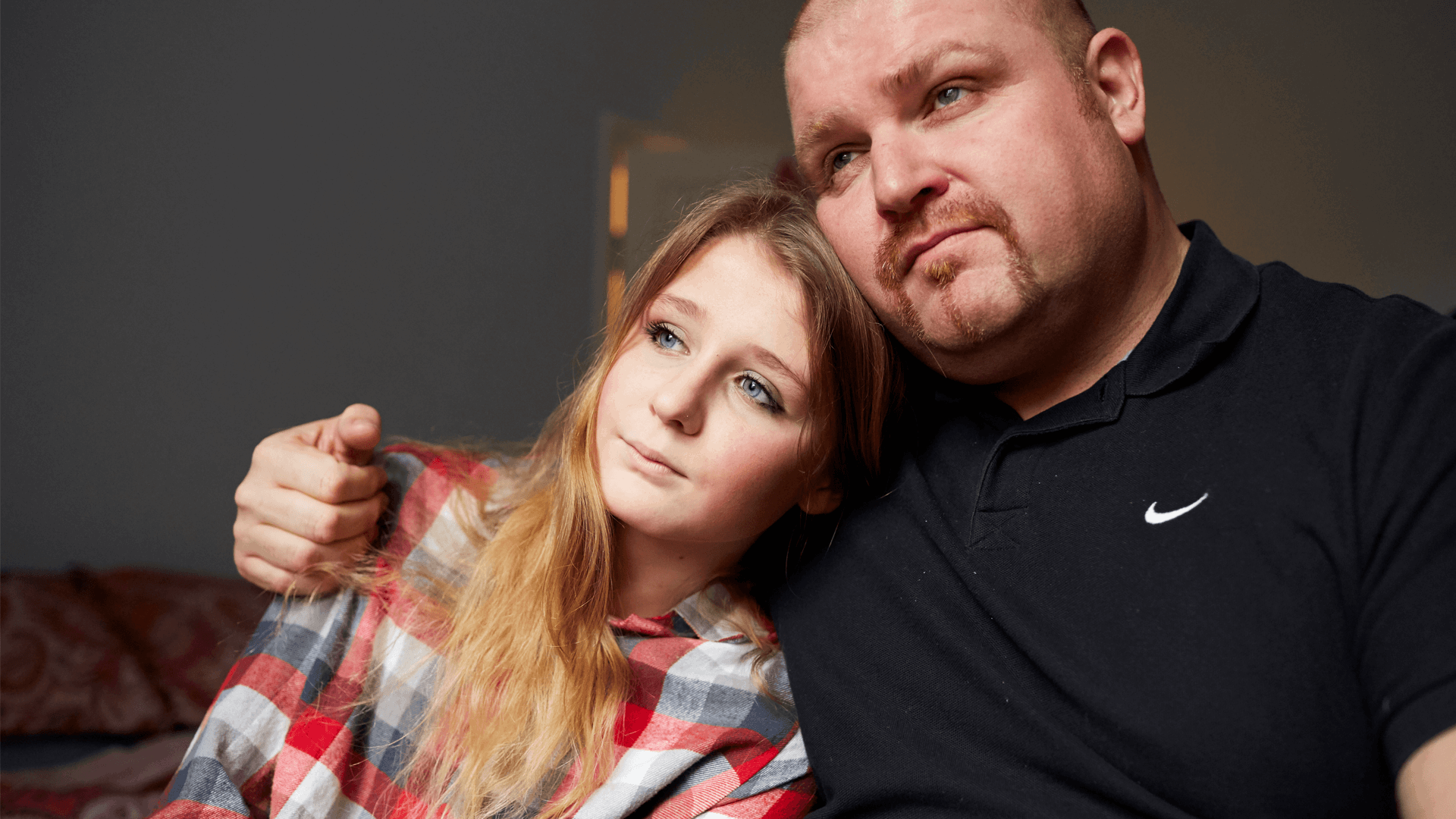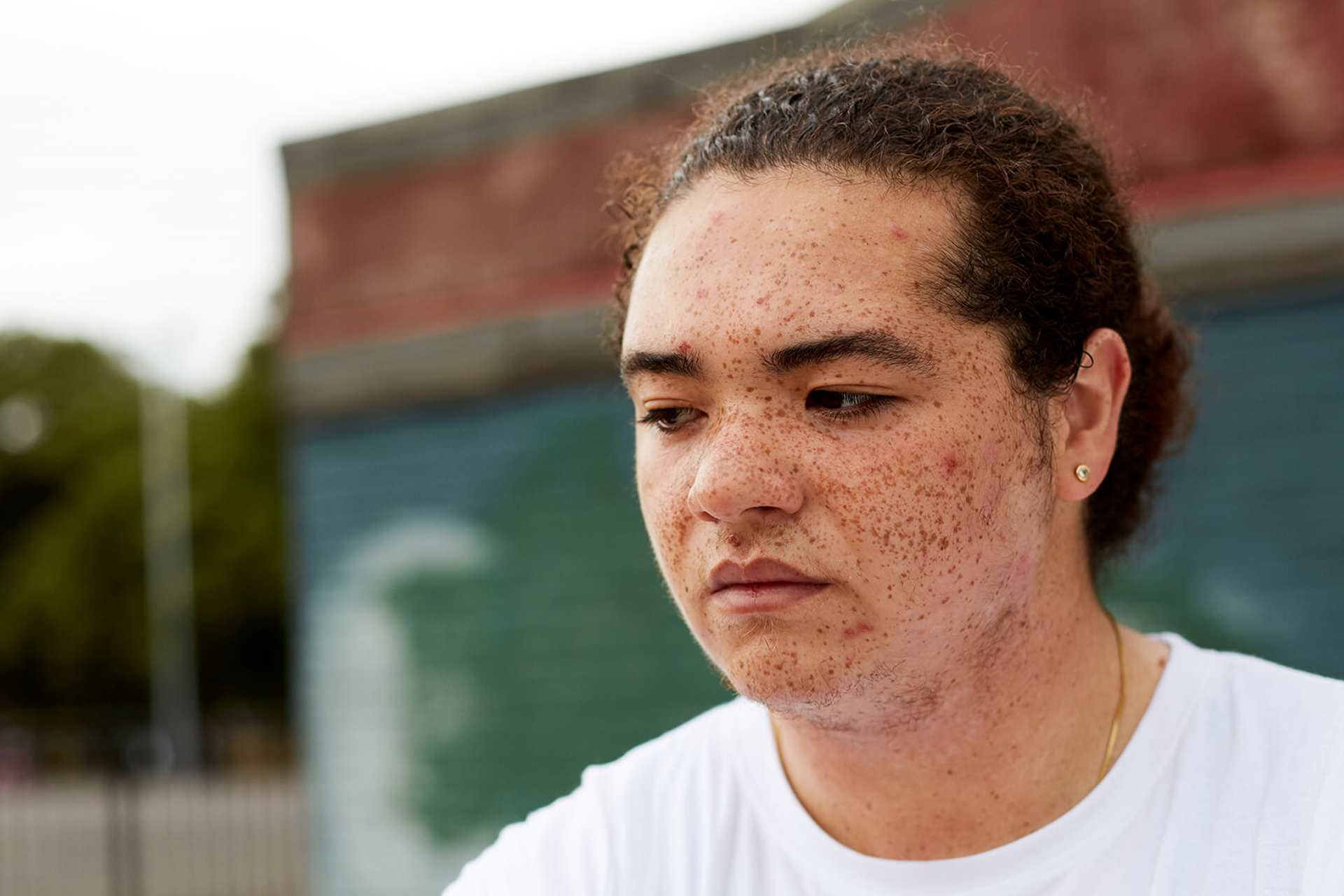Topics mentioned: family, reaching out for help, self-care
About: Harriet shares how her dad has helped her when she's been struggling with her mental health, and how he supported her recovery.
I think it’s safe to say my dad and I have always had a special relationship. We share the same silly sense of humour and never fail to have fun. While I was growing up he spent a lot of time away as he is in the Royal Navy.
Sometimes this would be just during the week but often it would be months. During this time he’d be in the middle of the Atlantic or some far-flung destination: North/South America, all over Europe, Bahrain, Qatar and even South Korea.
The strong relationship I have with my dad has been something I’ve drawn on for strength.
Obviously this made communication difficult but I will never forget the excitement when we received cheerful postcards regaling all his exciting adventures.
Naturally this made the time the four of us (my parents, my brother and I) spent together hugely important. I remember a childhood filled with laughter, happiness and exciting adventures where we would all four return to some of the places he’d been.
When my mental health rapidly deteriorated last year these colourful, happy childhood memories and the strong relationship I have with my dad has been something I’ve drawn on for strength. It reminds me of happier times and that I won’t be stuck in this nightmare forever; things will change.
From that day forward he has done everything that he can to understand my conditions
How my dad understood and encouraged me
Despite the close relationship I’ve always had with my dad, I was uncertain how he would react when he raced up North after I got taken to hospital to see the crisis team. This was due to my excruciating anxiety and admission of suicidal thoughts.
I was so worried that he would be ashamed of me, that I’d let him down, that I was a failure. Thankfully, I couldn't have been more wrong.
Even though my anxiety and anorexia are both things that he doesn’t innately understand, I can see that from that day forward he has done everything that he can to understand my conditions - whether it's researching on the internet, listening and letting me talk or always putting me first.
When I shared my story on Facebook to raise money by running the Bath Half-Marathon, he was the first person sponsoring me. He took my story into work and was bravely honest about what was going on in his family. He actually ran the half-marathon himself when my anorexia made me too unwell to do so.
I was so worried that he would be ashamed of me, that I’d let him down, that I was a failure.
One of the things that hit me hardest when I returned home from university was that I felt I had failed at the one thing I was good at: passing exams and achieving academically.
Once I voiced these fears my dad took it upon himself to prove me wrong. He is so encouraging and enthusiastic, something that is so helpful to me when I’m feeling drained, unmotivated, low and useless.
He’s always there to get me out the house (something that’s so important with anxiety) for a cup of coffee, or for photography of beautiful Cornwall where I live.
Or if it’s all too much he’s there to make a cup of tea and sit with me and watch Keeping up with the Kardashians or 90210, probably not his first choice!
He is so encouraging and enthusiastic, something that is so helpful to me when I’m feeling drained.
Fathers need support too
When supporting a child with mental illness, I think it’s so important for father figures to make sure that their child knows they’re dependable.
That there’s someone always ready to listen, to take them to seemingly endless appointments with professionals, to give them support on the bad days and to be there as they cope with the completely overwhelming painful battle that is recovery.
When someone within your family suffers with mental illness, it puts strain on everyone. I could see that my dad was beginning to struggle, so suggested he find someone to talk to. I am so glad he listened to me.
My dad is much better equipped to help me now that he has the support he needs. Self-care isn’t just hugely important for those suffering with mental illness, it’s hugely important for fathers too. You need to look after yourself so you can look after your child.
Self-care isn’t just hugely important for those suffering with mental illness, it’s hugely important for fathers too.
I know how difficult it was for me to ask for help, so I can’t begin to imagine how hard it was for my dad to admit that he wasn’t coping – especially with the stigma associated around men and mental health.
I am hugely grateful for all my dad’s continued support and encouragement as I know how important it is in my recovery. I’m also so proud of him for being strong enough to talk to others (in work, with friends or family) about mental illness to try to help end the stigma, especially that associated with male mental health.
I now know one thing for sure: he’s just as proud of me as I am of him.

More information and advice
We have tips and advice to help you find the support you need. Take a look at our guides.
Where to get help
However you're feeling, there are people who can help you if you are struggling. Here are some services that can support you.
-
Childline
If you’re under 19 you can confidentially call, chat online or email about any problem big or small.
Sign up for a free Childline locker (real name or email address not needed) to use their free 1-2-1 counsellor chat and email support service.
Can provide a BSL interpreter if you are deaf or hearing-impaired.
Hosts online message boards where you can share your experiences, have fun and get support from other young people in similar situations.
- Opening times:
- 24/7
-
Shout
Text SHOUT to 85258.
Shout provides free, 24/7 text support for young people across the UK experiencing a mental health crisis.
All texts are answered by trained volunteers, with support from experienced clinical supervisors.
Texts are free from EE, O2, Vodafone, 3, Virgin Mobile, BT Mobile, GiffGaff, Tesco Mobile and Telecom Plus.
Texts can be anonymous, but if the volunteer believes you are at immediate risk of harm, they may share your details with people who can provide support.
- Opening times:
- 24/7






